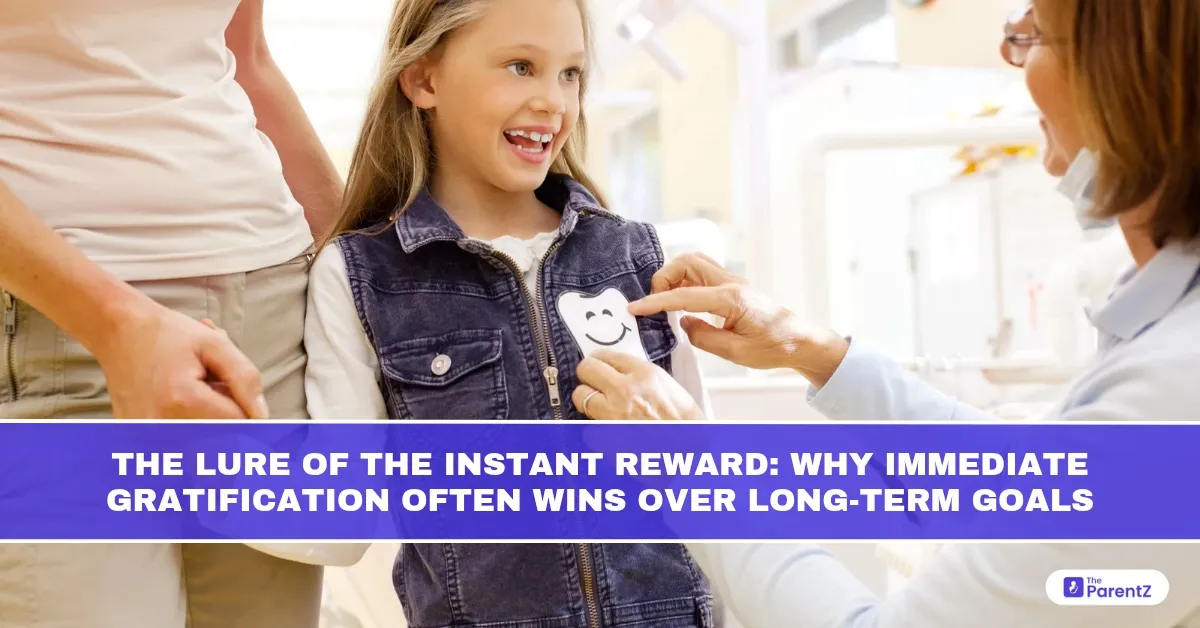It’s 7 p.m. Your child knows there's homework to finish, a project deadline looming, and that they promised to start earlier today. But there they are, nose-deep in a YouTube rabbit hole or reaching for another cookie instead of their pencil. You sigh, frustrated. Why does instant pleasure always seem to win?
It’s the battlefield between the present and the future — where impulse often overpowers intention. It’s not just your child. It’s a very human struggle.
Read this article to know why immediate gratification always seems to win over long-term goals and what you can do about it.
The Brain is Wired for Now
Children and, yes, many adults too, are naturally drawn to immediate gratification because of how the brain is wired. The limbic system, the part responsible for emotional responses and instant rewards, is fully developed from a young age. Meanwhile, the prefrontal cortex — the seat of long-term planning and self-regulation — doesn’t fully mature until the mid-20s.
Dopamine: The Sneaky Motivator
Every time your child gets a like on their post, finishes a level in a game, or even sneaks a treat, their brain gets a hit of dopamine — the feel-good chemical. These micro-rewards condition the brain to seek short-term wins because they bring instant happiness.
Studying for a test? That might pay off next week or next month. But watching a funny video? Boom — reward in seconds.
This is why delayed gratification feels like such a drag.
Long-Term Goals Feel Abstract
“Study hard now so you’ll get into a good college later.” “Save your pocket money today so you can buy something bigger next month.”
This may sound familiar. To kids, these long-term benefits often sound like vague, far-off promises. The future isn’t tangible — but that ice cream or cartoon is. It’s hard for young minds to trade something real now for something invisible later.
The Environment Doesn't Help
It’s a fast-paced digital world. Groceries arrive in 10 minutes, answers to complex questions appear in 0.3 seconds, and rewards are instant in games, apps, and media. So when reality moves slower — like waiting for exam results or building skills over time — patience becomes hard to practice.
Tips For Parents To Hit The Right Balance
You don’t have to fight their biology or rip out the Wi-Fi to build self-control. But you can teach balance.
- Make the future feel real: Use visuals, like countdown charts or goal jars, so they can “see” progress.
- Create small wins along the way: Break tasks into mini-goals with mini-rewards. ‘Finish this worksheet, then you can ride your bike.’
- Delay with purpose: Practice small moments of waiting. Even short delays — like waiting 10 minutes for a treat — build the self-control muscle.
- Talk about feelings, not just actions: Help your child notice how they feel after an instant reward versus after achieving something bigger. Emotional awareness builds long-term insight.
- Be the model: Children watch more than they listen. Show them how you manage temptations, too — whether it’s skipping dessert or turning off the TV to read.
Conclusion
Choosing long-term growth over quick hits is a lifelong lesson — one even adults are still learning. It takes empathy, patience, and practical strategies to help your child build this skill.
Because growth doesn’t come from guilt. It comes from guidance.





Be the first one to comment on this story.